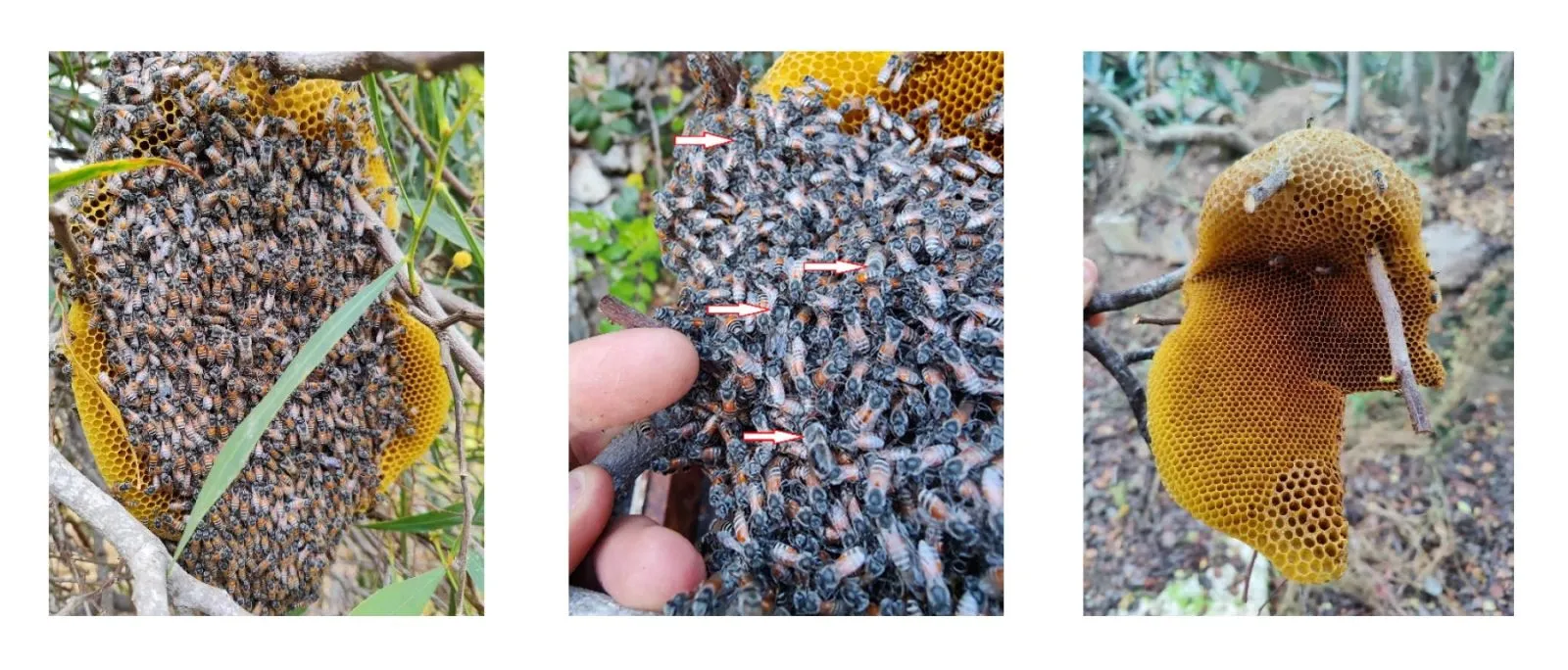This animal threatens Europe for the first time
Published by Cédric,
Article Author: Cédric DEPOND
Source: Journal of Apicultural Research
Other Languages: FR, DE, ES, PT
Article Author: Cédric DEPOND
Source: Journal of Apicultural Research
Other Languages: FR, DE, ES, PT
Follow us on Google News (click on ☆)
In Malta, the discovery of a colony of red dwarf bees, or Apis florea, is alarming beekeepers. Their presence could destabilize European biodiversity.

Left: A. florea colony hanging on a branch of Acacia saligna, the blue-leaf wattle (photo source: Antoine Borġ Bonaċi).
Center: A. florea workers and drones (arrows).
Right: A. florea comb (the lower right part of the comb is damaged).
These bees, smaller than their European counterparts, have already established themselves in the Middle East and North Africa. Likely arrived on a commercial ship, they now risk spreading across the continent. Their ability to forage efficiently makes them particularly competitive against local bees.
Philippe Grandcolas, research director at CNRS, emphasizes that the arrival of exotic species creates competition for limited resources like pollen and nectar. If these bees prove more efficient, they could out-compete native species. Additionally, they carry viral diseases and host parasites that could potentially devastate local bee populations.
The colony discovered in Malta, consisting of more than 2,000 adult bees, was destroyed immediately. However, scientists fear that some individuals may have already established a new colony on the island. Their proximity to the freeport of Birżebbuġa, Malta's main freight hub, suggests they arrived via ship.
Francis Ratnieks, emeritus professor at the University of Sussex, notes that this species could survive in mild climates like Malta or other southern European countries. Juliana Rangel from Texas A&M University adds that the proximity of the Mediterranean islands could facilitate their spread.
This situation is concerning, as the dwarf bee is already present in Israel, an environment similar to Malta's climate. The possibility of new incursions increasingly threatens the continent's biodiversity, she warns. Indeed, if European bees were threatened, ecosystems relying on these species could be destabilized.
In this context of uncertainty, the scientific community is closely monitoring the situation. Research continues to prevent Europe from becoming a new playground for these invasive bees.